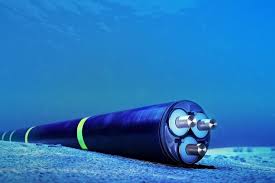by Jake Sanders, Editor
The Taiwan Semiconductor Manufacturing Company (TSMC) plays a crucial role in Taiwan’s economic and national security. As TSMC expands its operations globally, there are concerns that this move could make Taiwan more susceptible to potential annexation by China. Taiwanese political leaders share these concerns, but they possess the regulatory power to block TSMC’s new factories abroad and have chosen not to do so.
The primary reason for this decision lies in the alignment of interests between TSMC and the Taiwanese government. The government played a key role in TSMC’s establishment, and over time, the two have developed a mutual dependency. While there may be some unease regarding TSMC’s international investments, the government supports these efforts to enhance TSMC’s global presence and relies on the U.S. for backing.
Shih-Chang Hung, a professor at National Tsing Hua University, likens the relationship between TSMC and the Taiwanese government to that of Romeo and Juliet, highlighting their interdependence.
In the 1970s and 1980s, the Taiwanese government pursued a strategic industrial policy, known as “picking the winner,” focusing on high-tech sectors where Taiwan could excel. K.T. Li, often called the “father of Taiwan’s economic miracle,” persuaded Morris Chang to return to Taiwan and develop the semiconductor industry. With significant initial funding from the government, TSMC was founded in 1987, laying the groundwork for its eventual success.
Although the government initially held a substantial stake in TSMC, this share has dramatically decreased over the years. Today, TSMC operates as an independent firm with a market capitalization exceeding Taiwan’s economic output, contributing significantly to the local economy and attracting foreign investments.
TSMC also provides the Taiwanese government with international credibility and influence. Former President Tsai Ing-wen described Taiwan’s semiconductor industry as a “silicon shield” that protects against authoritarian threats to global supply chains. This perspective seeks to elevate Taiwan’s global standing beyond its relationship with China.
The Taiwanese government continues to support TSMC through favorable industrial policies, subsidies, and infrastructure development, ensuring a robust semiconductor ecosystem. This includes financial incentives for research and development and the cultivation of talent.
In contrast to past conflicts over investing in China, TSMC’s current expansions focus on the U.S., Japan, and Germany, with the Taiwanese government adopting different regulations for these investments. Despite Taiwan potentially violating WTO rules by imposing stricter regulations on China, the geopolitical context allows for this dynamic.
TSMC’s current strategy involves producing advanced technology abroad, particularly in Arizona, which will manufacture cutting-edge chips. This expansion aligns with U.S. interests, as there are concerns about reliance on Taiwan amidst rising tensions with China. The U.S. government has actively sought TSMC’s collaboration to ensure chip manufacturing resilience, especially with the backdrop of potential military conflicts in the region.



